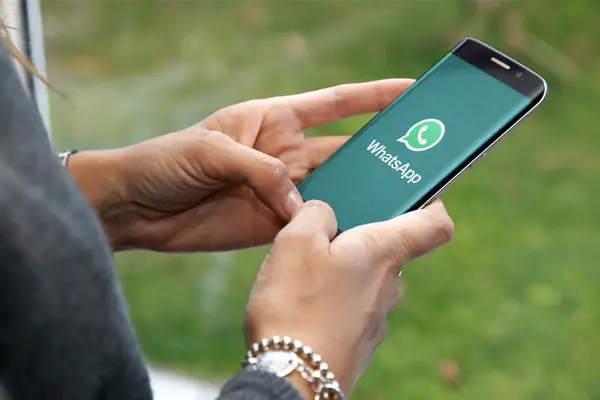There are several ways to recognize WhatsApp business scams. WhatsApp users have experienced scams for years, with many sharing their stories online. Scams can be disguised as a friendly text message, email or friend reaching out. Certainly, no one is safe from scammers, even millionaires living in a One Madison penthouse. To protect against hacking, WhatsApp has told users to enable two-step verification, eliminate sharing passwords and be vigilant about interactions. As a WhatsApp user, learn how to identify scams to protect your account, data and contacts. Here are the top ways to recognize WhatsApp business scams.
Rushed Communication
First, rushed communication with another WhatsApp user is a sign of a scam. Fraudsters pretend as if they are in a rush and try to make their victims flustered. In fact, they want to pressure users to act quickly without time to think the interaction over. Hackers can pretend to be anyone. For example, the criminal can advertise himself as the victim’s son and beg his “father” for funds to payoff overdue bills. In fact, adults over the age of 40 are more susceptible to fall for a fraud. Or, the fraudster can pretend to be a friend or acquaintance asking for money. Of course, if a conversation seems urgent and random, consider looking into it before giving out any information or money. Likely, if its an unknown account and they are pressuring you for money, its a scam.
Suspicious Links And Attachments
Secondly, common WhatsApp business scams are carried out through suspicious links and attachments. Scammers will message you a link that will try to retrieve your information, banking details and login credentials. As a result, they will take your data and try to sell it on the dark web. More so, if you have any photos sent through your WhatsApp account, they can sell your photos on the internet as well. There are 2 popular link scams on WhatsApp including the WhatsApp Gold and WhatsApp expiration scams. The WhatsApp Gold scam includes a link that will “provide” you with a more advanced WhatsApp version if you send a payment. Meanwhile, the WhatsApp Expiration scam claims that your account has expired and you need to submit a payment to reopen it. Of course, opening links from unknown accounts usually lead to account hacking and stolen data. Certainly, suspicious links and attachments are a common WhatsApp business scam.
Unexpected Codes
Another way to recognize a WhatsApp scam is by receiving unexpected codes. If you randomly receive a 6-digit code as if you were setting up a new WhatsApp account, you may be a target of scam. It starts with the code popping up on your account. Then, you’ll receive a message from a “friend” asking for the 6-digit code. Sadly, if it appears to come from a genuine friend, your account has already been hacked. If you don’t see it as a scam and send the code, it will directly give access to the scammer. They will be able to access all data, contacts and messages. In fact, they can message your friends and family by pretending to be you. As a result, they can continue the scam by turning your loved ones into new victims. Or, they will reach out, act as if you are in trouble and request funds for assistance. Surely, if you randomly receive an unexpected code, ignore it and do not send it to anyone as it is a common WhatsApp scam.
Payment Requests
Next, payment requests are a popular WhatsApp business scam to look out for. WhatsApp is a free program but victims are tricked into thinking they need to pay a fee to continue using the app. Victims will receive a message or warning stating something similar to “your account trial period is expiring”. Then, they are given a link that will lead to a customer portal where they can input their bank information to continue using WhatsApp. Of course, by inputting their information, they are at a high risk of having their finances compromised. Additionally, WhatsApp offers various money saving tips to protect against financial fraud within their application. WhatsApp is a free communication solution so if you are notified that your account trial is ending, it is clearly a scam.
Unauthorized Emails
Finally, there are WhatsApp scams that aren’t delivered through the app but to your email account that you should be aware of. You will receive an email stating that you received a WhatsApp call or voice message. They will provide a link that will allow you to “view” the notifications. However, when you click the link, you will have a virus downloaded onto your device. This virus can let scammers hack into your device and access any information kept on it. This is a common scam because most users aren’t aware that WhatsApp will never contact them outside of the app. Certainly, if you receive an email from WhatsApp, ignore it and delete it from your account.
There are various ways to recognize WhatsApp business scams. First, you can identify a scam by the speed of the conversation as most fraudsters try to act quick to pressure victims. Secondly, suspicious links and attachments are almost always a scam trying to trick you into providing your personal data. Of course, if you receive an unexpected code, do not interact with it or send it to other users as its likely a scammer trying to get into your account. Next, if you receive any request for payment about your account, ignore it since WhatsApp is a free app and scammers are trying to get your bank information. Finally, if you receive any email from WhatsApp, it is a scam since WhatsApp will not connect with users outside of the app. There are the top ways to recognize WhatsApp business scams.
 Business First Family Business, Accounting, Finance, Investing, Marketing And Management
Business First Family Business, Accounting, Finance, Investing, Marketing And Management
